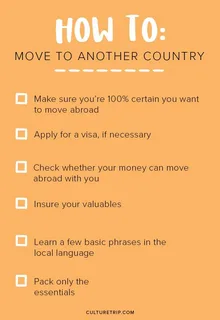Relocating internationally can be one of the most rewarding experiences of your life. New cultures, new opportunities, and a fresh start await. But moving to a country where the language is unfamiliar adds an extra layer of complexity. From setting up daily routines to navigating professional environments, language barriers can feel intimidating if you’re not prepared. Just as arranging Flyttstädning Kristianstad ensures a smooth handover of your old home, preparing for communication challenges ensures your transition abroad is less stressful and far more rewarding.
Why Language Preparation Matters
Communication is at the core of integration. Without the ability to understand or be understood, even simple tasks like grocery shopping, opening a bank account, or scheduling medical appointments can become stressful. Beyond daily life, language skills affect how quickly you adapt professionally and socially.
Step 1: Start Learning the Basics Early
Before you move, dedicate time to learning essential phrases. Focus on greetings, directions, numbers, and basic conversation starters. Even limited knowledge demonstrates respect for the new culture and makes daily tasks much easier.
Step 2: Use Technology to Bridge Gaps
Translation apps, language-learning platforms, and mobile dictionaries are powerful tools. Download apps before you arrive so you can navigate the first few weeks with greater confidence.
Step 3: Hire Professionals for Logistics
The stress of relocation multiplies when you add a language barrier. Working with cross country movers who specialize in international relocations reduces the pressure. These professionals handle complex logistics like customs paperwork, shipping regulations, and timelines, allowing you to focus on adjusting to your new environment without worrying about transport details.
Step 4: Take Formal Language Classes
Once you arrive, enroll in classes tailored for newcomers. Group classes provide both instruction and community, helping you meet others who are also learning the language. Many employers even subsidize classes for relocating staff.
Step 5: Practice With Locals Daily
Immersion is the fastest way to learn. Use your new language every day, even if it’s uncomfortable at first. Shop at local markets, strike up small conversations, and watch local TV shows to build vocabulary naturally.
Step 6: Join Expat and Local Communities
Expat groups can provide immediate support and practical advice, while local community groups help you practice the language in authentic settings. Balancing both networks gives you cultural comfort and linguistic progress.
Step 7: Prepare Official Documents in Advance
Legal and administrative tasks can be overwhelming in a new language. Translate key documents ahead of time, and keep certified copies ready for banks, schools, or government offices.
Step 8: Learn Non-Verbal Communication
Language isn’t just words. Gestures, tone, and facial expressions differ across cultures. Pay attention to non-verbal cues to avoid misunderstandings and to connect better with locals.
Step 9: Be Patient With Yourself
Language fluency takes time. Celebrate small victories — understanding a train announcement, ordering food without confusion, or having a short conversation. Progress, not perfection, will make your transition smoother.
Step 10: Involve Your Family
If you’re moving with family, encourage everyone to participate in language learning. Children often pick up new languages quickly, and shared learning experiences strengthen family adaptation.
Common Mistakes to Avoid
- Expecting fluency immediately.
- Relying only on English in non-English-speaking countries.
- Avoiding interactions due to fear of making mistakes.
- Neglecting cultural nuances in communication.
The Benefits of Embracing the Language
- Confidence: Greater independence in daily tasks.
- Professional growth: Better workplace integration and opportunities.
- Social connections: Stronger relationships with locals.
- Cultural appreciation: Deeper understanding of traditions and customs.
Conclusion: Turn Language Barriers Into Opportunities
Moving to a country with a different language may seem daunting, but with preparation and persistence, it becomes a powerful opportunity for growth. By learning basics early, using technology, working with professional movers, and immersing yourself in the local culture, you’ll turn challenges into stepping stones.
Just as a reliable cleaning service ensures your old home is ready for its next residents, your language preparation ensures you’re ready to thrive in your new environment. Over time, those first nervous conversations will evolve into meaningful connections — making your international move not just successful but truly transformative.

